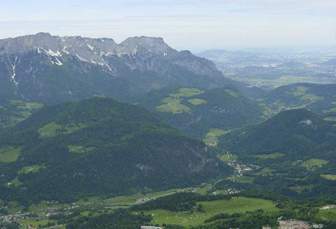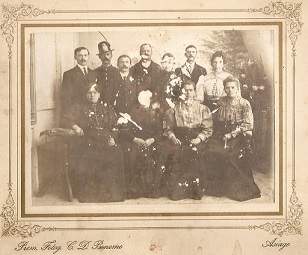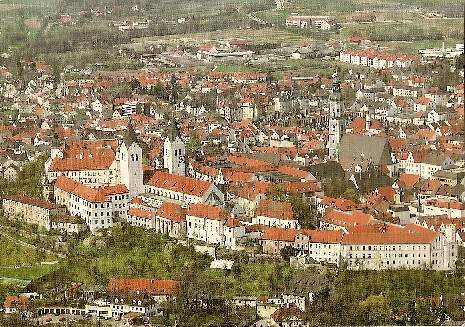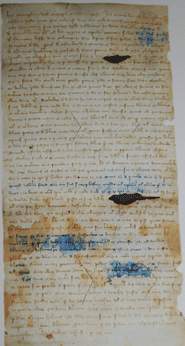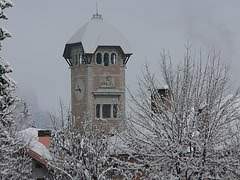|
English | Italiano RODEGHIERO’S FAMILY ORIGINS: FROM LOWER BAVARIA The origin of the Rodeghiero’s/Rodighiero's family is closely related to the origin of the Cimbrian community of the Seven Municipalities (I Sette Comuni), District of Vicenza, Italy. Coming from Lower-Bavaria (Swabian-Bavarian plateau) Between the XI and XIII centuries, in some geographical areas near to Veneto some ecclesiastical institutions, in this area the powerful local lords, in particular the Ezzelini’s family (also from Germanic origins) in need of trustworthy people to recruit for their military campaigns and to control their lands and make it economically profitable, contribuited several times to increase population and encourage colonization through feudal investitures and agricultural contracts of perpetual or long-term leasing. The Germanic patronymic of Rodeghiero’s/Rodighiero's family name, the Bavarian German language (AltBayrischer Dialekt) spoken in all Seven Municipalities until XIX century, the historical connections with the belonging areas and others documentary evidences testify the Germanic origins, in particular they are from the south-eastern Bavaria.
THE ORIGIN OF RODEGHIERO’S FAMILY NAME: FROM 750 YEARS ON THE PLATEAU OF THE SEVEN MUNICIPALITIES Rodeghiero/Rodighiero is a patronymic family name, hence a descent from such a Rüdegar. This surname is one of the oldest family names, if not the oldest, of Germanic origins still existing on the plateau of the Seven Municipalities - one of the few names brought by Cimbrian in the Municipality of Asiago, (together with Enghelmar, now disappeared) and nowadays still alive. Sir Rüdeger, the central character of the most important Germanic epic Nibelungenlied, is recalled in the chivalric poem of the Nibelungs, a XII century masterpiece, which ascribes to Rüdeger the personification of the knightly mentality.
A witness of Ezzelino’s properties in Marcesina (Bertoliana Library of Vicenza, Regestum, Fondo Torre numero 762) testifies again the presence in 1262 in Enego of Federicus Rodegerii de Enico, a settler leaseholder of a propriety.
The use of this patronymic family name begins to spread in the second half of XII century, then it was quite diffused as surname in XIV century. Its presence represents the colonization of the Plateau. Conco (VI) weas added at the former property of Asiago. The current family name presents some evolutions: initially the most used was Rudegeri, then Rodegero, with the variant Rodigiero. The last name Rodeghiero, with its variants (Rodighiero), is mostly present in the North of Italy (especially in Veneto). To the Asiago family group, through a linguistic analysis of the two most common similar variants, it’s applicable the "lectio facilior" (the most euphonic, in this case Rodighiero) or the "lectio difficilior" (the most difficult to pronounce, Rodeghiero). Flavio Rodeghiero, Rüdegar. Una storia familiare dell'Altopiano, Cierre edizioni, Sommacampagna (Vr) 2013. In attached a CD, by Alberto Alberti, (containing the equivalent of four sheets of 470 x 70 cm) with the family genealogy.
Notes [1] The term was adopted much later than the period of settlement by Loschi Antonio (1365-1441). It helps us so much more than linguistic analysis: the Baum (History of the Cimbri, Monaco 1983), in the footsteps of Bavarian Andreas Schmeller philologist who had studied from 1833 to 1837, described a Bavarian dialect spoken on the plateau back per thousand, and the period of colonization in 1150, with a significant other coming after 1200. Immigration was certainly made it attractive to the privileges and tax exemptions granted by the feudal lords, although a first wave may have been caused by famine in Lower Bavaria in the eleventh century. The main activity, after centuries of neglect following the disregarding of the Roman presence in guaranteeing security to roads, was made from cutting the forest and tilling the soil, so they were defined in Altdeutsche "Zimberer", meaning lumber-jacks. |
